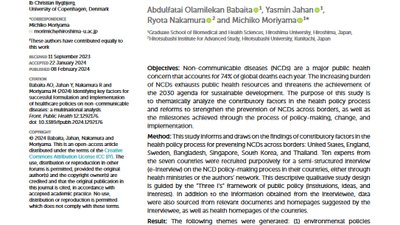Depression screening in chronic disease is advocated but its impact on routine practice is uncertain. We examine the effects of a programme of incentivised depression screening in chronic disease within a UK primary care setting.
Información de apoyo a gestores, investigadores, profesionales de la salud y a pacientes y cuidadoras, que trabajan en la en la gestión de Enfermedades Crónicas Complejas, e incluye publicaciones como artículos, informes, modelos de gestión, estudios y legislación relacionados con la materia. En esta sección se incluyen algunas publicaciones que pueden no ser de libre acceso (propiedad intelectual), y cuya inclusión en OPIMEC está basada en el derecho de cita y con referencia a la fuente original.
Esta sección se contempla como un repositorio de conocimiento abierto y en la que todos los miembros de OPIMEC pueden añadir nuevas publicaciones. Por favor para cualquier duda o sugerencia pónganse en contacto con el equipo editorial. Asimismo podrá acceder a la suscripción RSS de publicaciones si es de su interés.
Para que su publicación aparezca en OPIMEC sólo tiene que registrarse y formará parte de este esfuerzo conjunto con los/as mejores profesionales internacionales en la materia.




